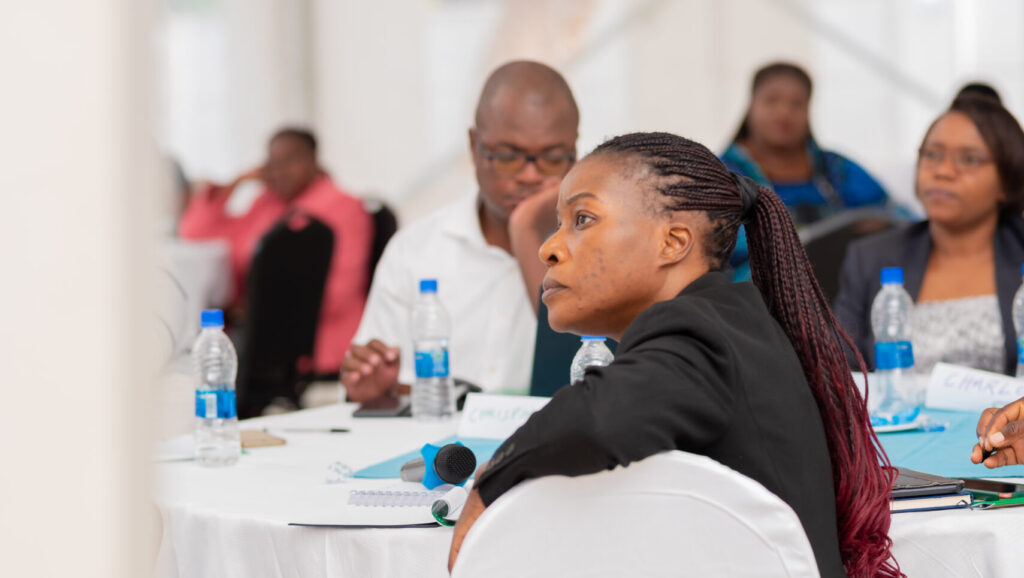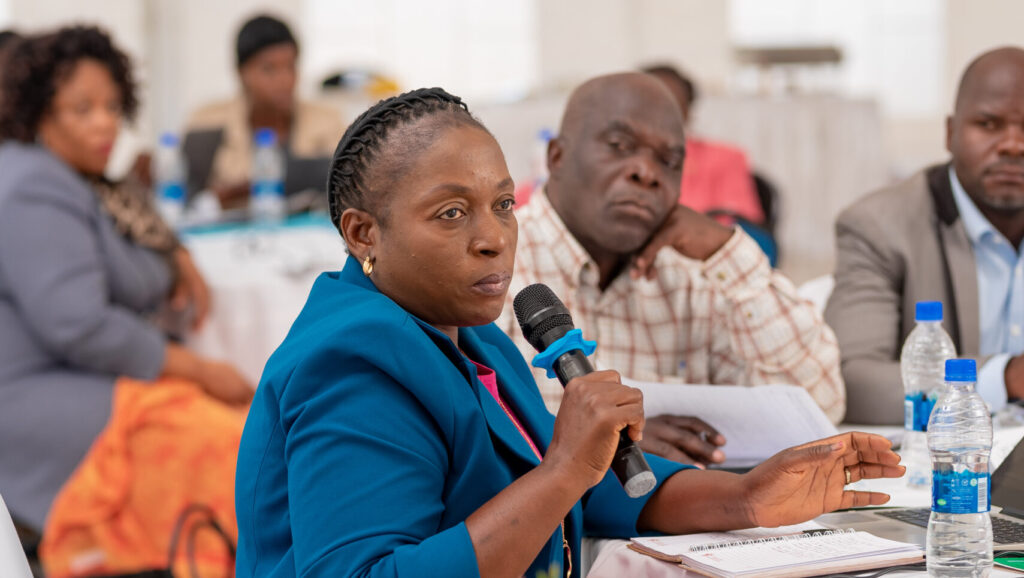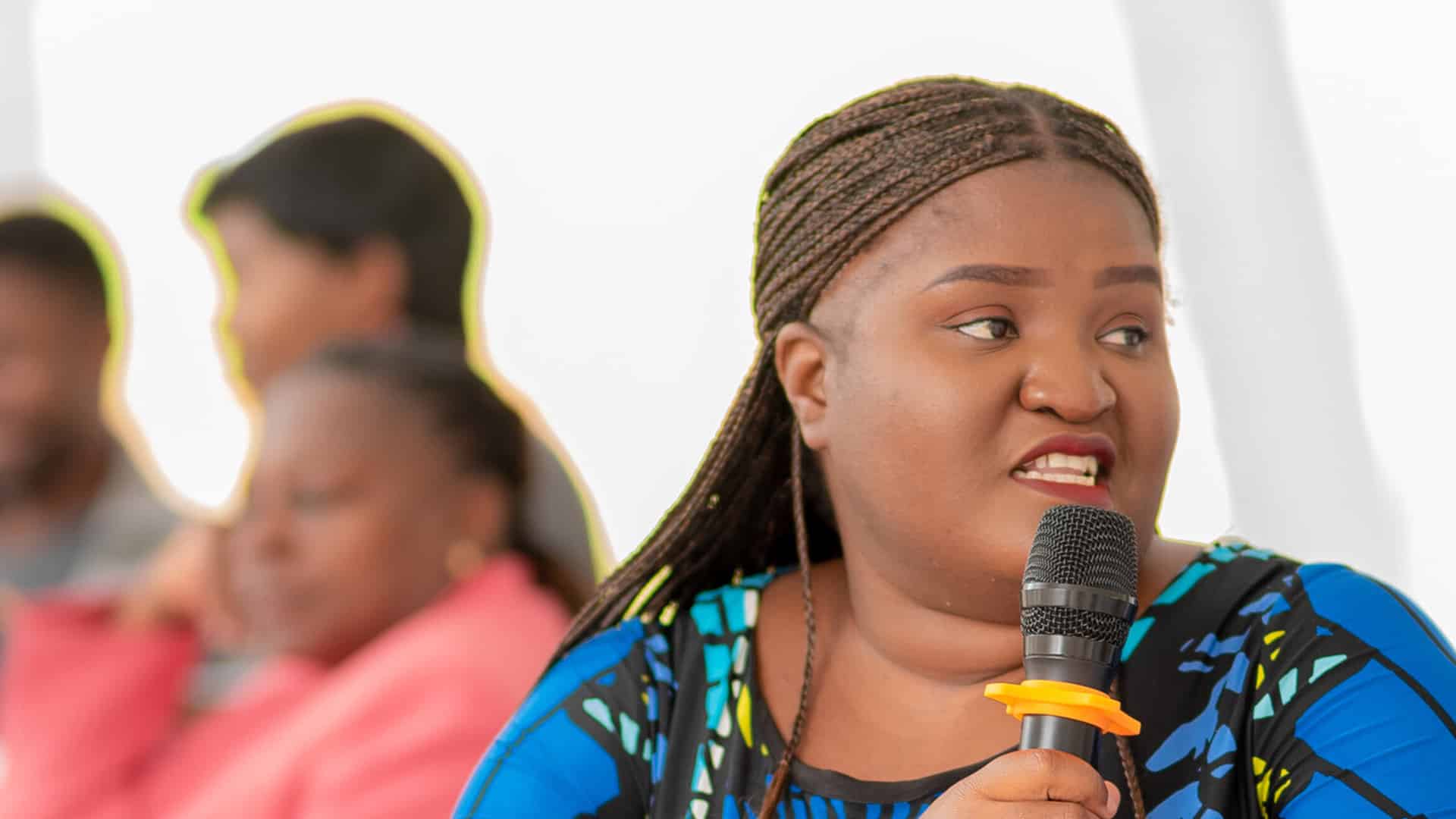Women’s rights can only be advanced if it is clear what problems they are facing. A workplace gender audit in Malawi is the first step in eliminating sexual harassment and enabling women to fulfil their potential in the workforce.
When the Gender Equality Act was passed in Malawi in 2014, it signalled that the country was committed to giving women and men equal rights under the law and treating everyone with dignity. The law includes significant rights for those who experience sexual harassment in the workplace and has an aim to eliminate it entirely.
On top of this, the International Labour Organization’s CONVENTION 190 – adopted at the International Labour Conference in Geneva in 2019 – recognises that violence and harassment in the workplace can constitute a human rights violation.
“We see this as a gold standard for ensuring equality in the world of work,” says George Khaki, executive director of the Employers’ Consultative Association of Malawi (ECAM). With 228 members, ECAM fosters an environment in which businesses can thrive, and lobbies the government on labour and employment issues. “We think of ourselves as a torchbearer, to see to it that our policies and practices in the workplace reflect Convention 190,” adds Khaki, even though the convention is not yet ratified in Malawi.
So, after reports of sexual harassment and discrimination in workplaces in Malawi were discussed at that conference in 2022, leaders like Khaki decided to take action.
To tackle cases of gender inequality and harassment, it’s important to know the depth of the problem. ECAM felt a gender audit would be a good starting point and it approached the ICR Facility to provide TECHNICAL ASSISTANCE. With the goal of helping African, Caribbean and Pacific (ACP) countries achieve business reforms that work for women, the ICR Facility used its extensive network and technical experts to conduct surveys and interviews from September 2022 to March 2023.
Women in the workplace
According to the World Economic Forum’s 2022 GENDER GAP REPORT, women make up about 71% of the workforce in Malawi, compared with 80% of men, and many of them are focused on producing local food. It’s important to note that 89% of employment takes place in the informal sector, with women more likely to be self-employed and in precarious positions that offer little in the way of stability.
The same report finds that only 11% of firms have female majority leadership and, more worryingly, that 37% of women in Malawi are subjected to some form of gender violence in their lifetime. To a large extent, the ICR Facility’s research backed up some of these findings. In three-quarters of the 28 larger companies surveyed, for instance, fewer than one in five women held senior management positions.
Underreporting of problems
To understand the current picture in Malawi, the ICR Facility gathered the views of HR professionals, 500 employees, ECAM members, and 150 micro SMEs across sectors, in both urban and rural areas. As the aim was to get a national view, the responses were anonymised, with more women than men taking part in the audit (roughly 60-70%). A majority of those who took part hoped the survey could help improve working conditions by making it clear that harassment is wrong. “This survey will help us women to know our value,” commented one participant, “and to stand firm on our rights.”
In fact, the research found that many women didn’t bother reporting incidents. Irene Danquah, one of the ICR Facility’s technical experts leading the gender audit, believes this might lead to “complacency from management or HR that the problem isn’t there and enough is being done. It’s a feeling that we are okay because we aren’t getting reports.”
Those surveyed often didn’t report problems for fear of losing their jobs, others that they would be victimised, and many thought nothing would be done about it. “I was sexually harassed,” said one, “but I took it as a normal thing and didn’t report it to anyone.” There was also a lack of awareness about which channels or external agencies could be used to report incidents. One said her workplace didn’t provide “a safe place where we could report or discuss [it]”.
In mid to larger-sized companies, 29% of respondents said they had experienced unwanted physical contact, which was the biggest complaint. Furthermore, 14% highlighted instances of “sexual coercion” – getting a career boost in return for sexual favours. The power imbalance was reflected in one comment: “The ones who are supposed to protect you are the ones who are abusing the employees.”
While only 5% of people in micro enterprises believed gender-based harassment to be common, many could be “inadvertently widening the gender gap”, says Danquah. Unlike larger companies, she explains, they don’t have the resources or capabilities to put formal policies in place to protect workers. Only half of the micro SMEs surveyed – a very large sector for ACP countries – said they had guidelines (formal or informal) to address issues of gender inequality or sexual discrimination.
It also came as a surprise to learn that the gender pay gap still exists, despite legislation designed to eliminate it. According to the World Economic Forum, men in Malawi earn 1.850 USD compared with 1.160 for women, while 59% of women reportedly don’t receive payment for their work, in contrast to 26% of men.
Next steps
The research has led to a comprehensive gender audit report that will be circulated to private and public partners, including the Ministry of Labour and the Ministry of Gender, to bring about change at both the national and organisational level. Additionally, a new role will be created at ECAM with a focus on gender, together with the implementation of a business agenda that promotes gender equality.
“Our work with the ICR Facility shows there is evidence out there [of sexual harassment and discrimination],” says Khaki from ECAM. “At the national level we have seen that there are some shortfalls in the legislation, especially the Gender Equality Act. We are hoping to use this report to lobby for change so that it is in tune with what is happening now.”
There has also been training for ECAM members, in coordination with the ICR Facility. The training has the aim of building awareness and helping organisations develop adequate policies to tackle problems. Participants, such as the National Association of Small and Medium Enterprises, have said the training will make a “big impact” on gender issues and help “implement the business agenda that we have prioritised”. More than that, however, is the hope that the ICR Facility’s collaboration with ECAM will lead to more women participating in the workforce.
Women key to economic development
Malawi has an ambitious VISION TO BECOME A SELF-RELIANT, INDUSTRIALISED NATION with inclusive wealth by 2063. As a youthful country of 20 million where the AVERAGE AGE IS JUST 17, there are many opportunities for it to become globally competitive in the next decades. But the WORLD BANK HAS IDENTIFIED SOME BARRIERS. Among these is the economic empowerment of women.
As the World Bank’s WOMEN, BUSINESS AND THE LAW REPORT itself says: “Governments cannot afford to sideline as much as half of their population. Denying equal rights to women across much of the world not only is unfair to women, but also is a barrier to countries’ ability to promote green, resilient, and inclusive development.”
This project – requested by ECAM and undertaken by the ICR Facility and ECAM – ensures that women’s voices are not only heard but that action is taken, making the Malawian workplace and the wider business climate more responsive and sensitive to gender issues.
As the World Bank’s WOMEN, BUSINESS AND THE LAW REPORT itself says: “Governments cannot afford to sideline as much as half of their population. Denying equal rights to women across much of the world not only is unfair to women, but also is a barrier to countries’ ability to promote green, resilient, and inclusive development.”
This project – requested by ECAM and undertaken by the ICR Facility and ECAM – ensures that women’s voices are not only heard but that action is taken, making the Malawian workplace and the wider business climate more responsive and sensitive to gender issues.


This publication is part of an intervention supported by the Investment Climate Reform (ICR) Facility. The ICR Facility is co-funded by the European Union (EU), the Organisation of African, Caribbean and Pacific States (OACPS) under the 11th European Development Fund (EDF), the German Federal Ministry for Economic Cooperation and Development (BMZ) and the British Council. The ICR Facility is implemented by GIZ, the British Council, Expertise France, and SNV. The contents of this publication are the sole responsibility of the author and do not necessarily reflect the views of the donors or the implementing partners.
